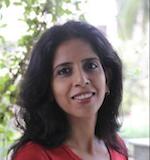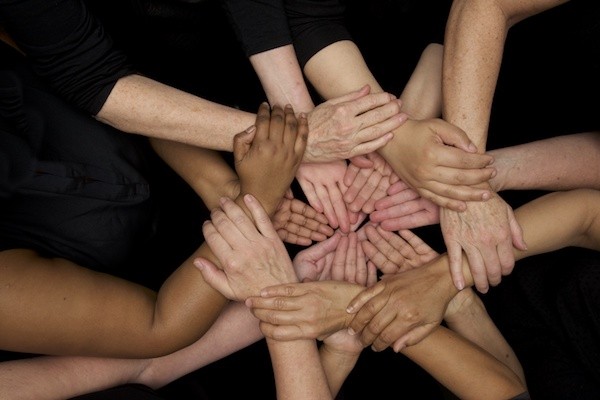Almost every major global issue has its roots in some form of inequality. There is an imbalance of social, economic and political power between and within countries. Every major movement in the past few years — MeToo, Occupy Wall Street, Black Lives Matter or the Arab Spring — has been about a minority speaking the truth, or speaking out against injustice and discrimination.
The world has never been more connected nor has it ever been more divided. What we need now more than ever is a different kind of energy that will heal our collective wounds and bridge the deep rifts between people. This is true for countries, communities and organisations.
Empowering people and ensuring inclusiveness and equality is critical to realising sustainable development, said a joint report released by the United Nations Economic and Social Commission for Asia and the Pacific (ESCAP), the Asian Development Bank (ADB), and the United Nations Development Programme (UNDP).
Professional coaches are in a unique position to make a big difference to humanity.
Coaching is a process of tapping into the gifts that are present in everyone and enabling them to be the best version of themselves. The International Coaching Federation (ICF) defines coaching as “partnering with clients in a thought-provoking and creative process that inspires them to maximise their personal and professional potential.” I believe that coaches can bring their offering to the world to enable inclusion and empowerment. The process of coaching itself can help individuals and groups understand their barriers and open the door for honest dialogues.
Coaches can support inclusion and empowerment in three distinct ways:
1. Actively coach leaders on diversity, inclusion and belonging
There is a vast amount of research showing that diverse and inclusive organisations have more employee engagement, a vibrant culture and better bottom-line results. The Mckinsey research report – Diversity Wins: How Inclusion Matters, showed that in 2019, companies that were in the top quartile for gender and ethnic diversity outperformed fourth quartile companies by 36 per cent in terms of profitability.
Yet, organisations have a long way to go before they become truly diverse and inclusive. Initiatives in organisations and communities are driven by strong passionate leaders, who advocate for a cause they believe in. Coaching leaders around inclusion and diversity can help them weave these elements into the organisations they lead. While workshops, such as Unconscious Bias sessions and online D&I sensitisation do create awareness, coaching helps to create sustainable behaviour change. Human resource leaders and functional leaders can bring coaches on board to drive the diversity & inclusion agenda apart from using coaching just for talent development.
Small group coaching, where each individual can identify and work on her/his biases, makes a big difference to the impact of the learning. When leaders work actively with their own experiences and make the connections between concepts and real-life situations, it helps to drive transformation in the communities they lead.
One of the leaders I had coached admitted that the biggest difference he saw in himself was the ability to listen without judgements. This helped him be more inclusive in decision making and allow multiple voices to be heard. The quality of decisions improved and the team felt acknowledged and appreciated.
2. Offer coaching to underserved groups
Coaching should not be a privilege that only corporations and wealthy individuals can afford. Coaching and mentoring are very powerful ways of empowering and enabling marginalised groups. I am associated with a non-for-profit initiative that organises mentoring and coaching for young women from underserved backgrounds and we can see the visible difference in their self-confidence and self-esteem as a result of this support.
Coaching is a beautiful way to enable anyone who has suffered from systemic oppression or has been conditioned to feel like a victim to connect to their inner power and resourcefulness.
Coaching under-represented communities in organisations also helps them to integrate and perform effectively in the organisation. Employees who are differently abled or have a different sexual orientation or belong to an ethnic minority can benefit from coaching that helps them manage the ‘emotional tax’ of being different.
Employee Resource Groups need to look at coaching as an effective way to support those in need to deal with feelings of isolation, exclusion and handle any biases they may face.
3. Do self-work and coach yourself!
All of us coaches know the importance of continuously reflecting and working on ourselves. Personal transformation runs parallel to transforming others.
In August 2020, ICF released the ICF Statement of Diversity, Inclusion, Belonging and Justice:
ICF Members and credential-holders live and work in more than 140 countries and territories. A vibrant global community, ICF is committed to the shared vision of making coaching an integral part of a thriving society. Our mission is to lead the global advancement of coaching. To do this, we must reflect on our blind spots and be aware of opportunities for improvement. We cannot ignore the challenges that many coaches and coaching clients face due to systemic problems in their communities.
As members of the ICF community, we ascribe to the core values of integrity, excellence, collaboration and respect. The foundation of these values is a shared commitment to diversity, inclusion, belonging and justice.
We will place diversity, inclusion, belonging and justice at the forefront of every decision we make within our Association. As we continue the journey toward our vision, we will recommit ourselves to valuing the unique talents, insights and experiences that every coach and client brings to the world.
It is also important for coaches to work on two areas for themselves and their clients: Bias and Rank. Coaching on biases and creating an awareness of rank is something that coaches can also offer to their clients. If we ignore bias and rank, and pretend that they do not exist, they will creep into our conversation and impact the quality of our listening and questioning. These will impact leadership effectiveness and the quality of belonging and inclusion in organisations.
Bias
All humans are biased. We have preferences for working with certain kinds of people and avoid certain others. We carry our judgements and prejudices into the conversations. I have realised that I have a passion and a preference for coaching women leaders. One of my biases is that very senior and older leaders do not respond well to coaching since they are set in their ways. This is something I had to be conscious of and set aside during an assignment to coach senior employees of a public-sector bank who had been in the same organisation for over 20 years. I actually found them to be humble and more sincere than many youngsters.
Rank
Rank, according to Arnold Mindell, is the sum of the power and privilege of an individual. Rank impacts human interactions in all aspects of life. We derive our rank from our social status, organisational position, demographic characteristic and even psychological aspects. Human beings are constantly and subconsciously calculating our relative rank in any social context. This impacts coaching engagements as well. I am aware of my position of privilege when I am coaching a young nineteen-year-old girl from an economically disadvantaged background just as I am aware of the rank of a white male CFO of a large multinational corporation.
Rank creates silos within organization and distance between employees. As we enter the sacred space of work, we need first to become aware of our biases and notions of rank and then gently leave them at the door.
“It is not our differences that divide us. It is our inability to recognize, accept, and celebrate those differences,” said writer Audre Lorde.
Coaches can help to do just this. Organisations and coaches need to come together to use this powerful tool and create a more just and equitable world.
To learn more about professional coaching and its organisational benefits, visit International Coaching Federation.
The International Coaching Federation (ICF) is the world’s largest organisation leading the global advancement of the coaching profession and fostering coaching’s role as an integral part of a thriving society. Founded in 1995, its 35,000-plus members located in more than 140 countries and territories work toward common goals of enhancing awareness of coaching and upholding the integrity of the profession through lifelong learning and upholding the highest ethical standards. Through the work of its six unique family organisations, ICF empowers professional coaches, coaching clients, organizations, communities and the world through coaching.
In India, ICF is represented by six vibrant chapters, all led by volunteers — ICF Bengaluru, ICF Chennai, ICF Delhi, ICF Mumbai, ICF Pune and ICF Hyderabad.
 Nirupama Subramanian, the author is an ICF PCC coach, facilitator and leadership development expert with a work experience of over 25 years. She has coached and trained over 15.000 people across 55 organisations across the world. She is the co- founder of GLOW- Growing Leadership of Women, which uses coaching and training to enhance Inclusion in organisations and empower women to create a more just and equitable world. She is also a Motivational Speaker and a published author of 2 novels and over 100 articles. Nirupama is a member with the ICF Delhi Chapter.
Nirupama Subramanian, the author is an ICF PCC coach, facilitator and leadership development expert with a work experience of over 25 years. She has coached and trained over 15.000 people across 55 organisations across the world. She is the co- founder of GLOW- Growing Leadership of Women, which uses coaching and training to enhance Inclusion in organisations and empower women to create a more just and equitable world. She is also a Motivational Speaker and a published author of 2 novels and over 100 articles. Nirupama is a member with the ICF Delhi Chapter.


